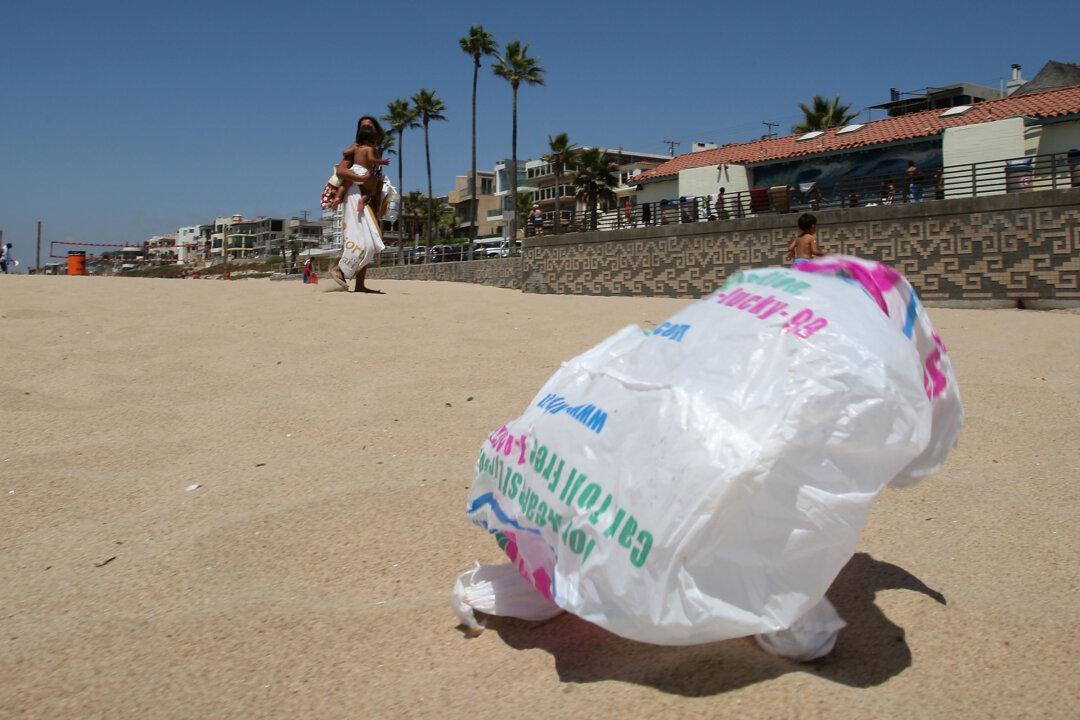Some plastic bag companies selling products in California will have to prove their bags are recyclable or face enforcement actions, state Attorney General Rob Bonta announced Nov. 2.
California banned single-use plastics this year and most bags indicate they are such by displaying a “chasing arrows” symbol or labeled with 100 percent recyclable markings.





